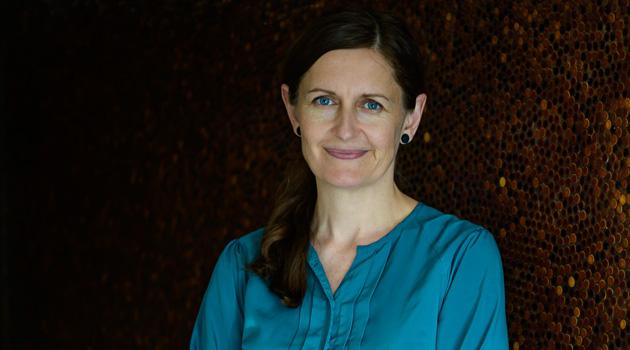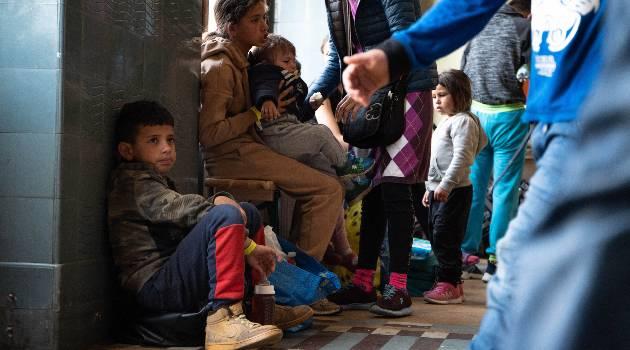Czech Government appoints Human Rights Commissioner as Coordinator for Refugees from Ukraine

The adaptation and integration of those fleeing Russia's war on Ukraine who come to the Czech Republic will be coordinated by the current Czech Government Human Rights Commissioner, Klára Šimáčková Laurenčíková. The cabinet appointed her to the position of national coordinator on 15 February.
Czech Interior Minister Vít Rakušan (Mayors and Independents – STAN) informed journalists of the move at the press conference after the cabinet session, adding that nothing is changing about the ministry’s readiness should the crisis escalate and the work of the crisis staff increase in intensity. He does not, however, assume that such a situation will arise.
Speaking to the Czech News Agency (ČTK) on Tuesday, 14 February, Laurenčíková said her task is to lead the strategy group, coordinate ministries, and strengthen collaboration with the Association of Regional Authorities, the Union of Towns and Municipalities of the Czech Republic, and the nongovernmental sector so that the process of adaptation and integration will be high-quality across the regions and run uniformly. According to Rakušan, the group will continue the work of the existing interministerial group and of experts and will develop a strategic plan for submission to Parliament.
“I thank the Government for its trust. I will do my best to be an anchor for the regions. I will concentrate on good, interdisciplinary collaboration between the social services, schools, health care services and security units. We also need the coordination of state actors with nongovernmental organizations to continue, those that have performed and are still performing brilliant work. When all crucial stakeholders are properly connected and functionally cooperating, that will achieve the successful adaptation and integration of those who have found a safe harbor from the war in the Czech Republic,” the coordinator said on 15 February.
Since Russia’s full-fledged invasion of Ukraine almost one year ago, the Czech Republic has issued more than 488,200 temporary protection visas to people from Ukraine. Most are minors and women.
At the beginning of March 2022, the Czech Government declared a state of emergency in order to control the influx of those fleeing the war and its approach was managed by a Central Crisis Team. The strategy group comprising representatives of ministries and other institutions began meeting subsequently on measures and solutions.
According to Rakušan, the Crisis Team will continue its work, but crisis management is no longer needed. After this year of work it will concentrate more on the adaptation of those granted temporary protection.
“We are not in a crisis currently, not in a crisis management situation where we have to address the influx of tens of thousands of people coming here,” the minister said, adding that the Crisis Team remains in a “stand-by regime” and some ministries will no longer participate in the strategy group’s work. According to Laurenčíková, the group will concentrate on housing, education, employment and the conditions for vulnerable groups, i.e. people living with disabilities, seriously ill people or seniors.
The group will address support for the gradual relocation of those under protection from temporary accommodations to regular housing. It should also dedicate itself to establishing programs for children and youth.
According to a recent survey by the PAQ Research agency, about 10 % of boys and girls from Ukraine are not attending primary school in the Czech Republic. Czech-language instruction for adults from Ukraine is also insufficient, according to surveys.
There is also a lack of support for protected persons from Ukraine who are seeking housing and jobs. The Consortium of Non-Government Organizations Working with Migrants has also been pointing out that the approach taken by schools towards pupils from Ukraine is not uniform and there is a lack of assistants in the schools who are Ukrainian.
Laurenčíková was appointed the Czech Government Human Rights Commissioner in the first half of May 2022. Ten days after that she became involved in addressing the situation around the Romani people from Ukraine who had no choice but to live in the main railway station in Prague.
She regularly attends meetings about those seeking protection. This year she also became the third political Deputy Minister for European Affairs.

Interior Ministry will assume management of the assistance centers for those seeking protection on 1 April, Regional Authorities will no longer run them
On 1 April, the Interior Ministry will assume management of the network of assistance centers for those from Ukraine seeking protection, which will no longer be run by Regional Authorities. Rakušan said after the cabinet session that new arrivals will still be able to apply for temporary protection in all regions.
In cases where those seeking protection do not have accommodation, they will turn to the workplaces allocated for that issue. The ministry will provide nonstop operations in three locations where people without accommodation will be able to sleep and wait for the standard workplaces to open.
The Interior Ministry said in a press release that the standard offices will handle applications for temporary protection and aid those from Ukraine with finding accommodation. A list of all the workplaces where it will be possible as of April to apply for temporary protection, deal with accommodation or spend the night, including their office hours and addresses, will be published by the ministry on its website during March.